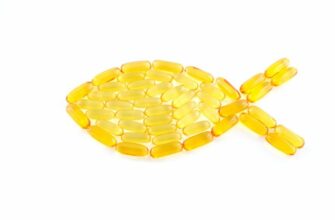People around the world have been using coriander for thousands of years. The plants’ leaves are called cilantro and used in countless recipes. When the plant flowers, it produces light brown seeds that are harvested and used as a spice.People use the seeds whole, but they can also be ground. The Old Testament mentions coriander, making it one of the oldest spices ever recorded. Modern science is just beginning to explore the medicinal properties of this ancient spice.
Lowers Blood Sugar
Coriander is effective at lowering blood sugar, and it does so in different ways. One study shows that coriander causes an increase of glycogen in the liver, which indicates the body is lowering blood glucose by converting and storing it as glycogen. Another study shows that coriander also decreases blood sugar by stimulating the pancreas to release insulin.
Lowers Cholesterol
One study in rats showed that coriander may help lower cholesterol. The experiment involved feeding rats a high-fat diet with added cholesterol. Some of the rats also received coriander seeds. The latter group saw a significant decrease in “bad” LDL cholesterol and an increase in “good” HDL cholesterol compared to the control group.
Helps Gastrointestinal Disorders
Coriander may also help treat some gastrointestinal issues. One study done on rabbits and guinea pigs looked at the effects of coriander on a variety of disorders, including indigestion, cramping, and diarrhea. The results show that coriander could help calm these conditions, possibly due to its ability to stimulate and inhibit action in the gut.
Treats Seizures
One study shows that coriander has a significant effect on seizure activity in rats. All doses of coriander that scientists administered in the study reduced the frequency and duration of seizures. They also lessened the amount of damage to the neurons in the brain following seizure activity. Researchers believe that these effects are due to the antioxidant properties of coriander.
Acts as a Diuretic
Coriander also works as a diuretic. In one study with rats, researchers gave an IV infusion of coriander seed extract and compared the results to a common diuretic drug called furosemide. Although furosemide produced more potent results, coriander seed extract successfully increased urine output and electrolyte excretion. It appears to work in the body similarly to the pharmaceutical.
Potential Cancer Treatment
One study suggests that coriander be considered as a possible cancer treatment, in part because it contains ascorbic acid, a known powerful antioxidant with anticancer properties. This study focused on extracts from the plant’s roots and shows that it has some effects on the enzymes and various pathways, prohibiting cancer cell growth and spread.These effects were not very potent, however, and more research is needed to determine if including coriander in a healthy diet could protect against cancer.
Acts as Antimicrobial
Coriander has significant antimicrobial activity, which is of increasing interest to researchers as resistance to antibiotics becomes more and more of a concern. One study shows that coriander essential oil has a broad-spectrum effect on various bacterial strains. It was most effective against B. cereus, a bacteria that causes food poisoning, and A. baumannii, an increasingly drug-resistant opportunistic bacteria that affect those with compromised immune systems.
Acts as an Antifungal
One study shows that coriander is also effective at treating fungal infections, an important finding as drug resistance against antifungals increases. This study looked at the effects of coriander essential oil on candida, a fungus that commonly causes thrush and vaginal yeast infections.The results show that coriander is an effective treatment for candida, and it has a synergistic effect when used together with amphotericin B, a common antifungal medication.
Reduces Anxiety
Coriander may also be useful when treating anxiety. One scientific review looked at the effects of coriander compared to diazepam, a drug commonly used to treat anxiety. Results of the study show that the effects were similar, significantly reducing signs of anxiety in lab rats. More research is needed, but coriander appears to have potential as a muscle relaxant and sedative.
Growing and Using Coriander
When growing coriander at home, the plant needs full sun and well-drained soil. Plant it in the spring or fall, at least a month before the first frost. The plant can tolerate cooler weather, and it will flower when the temperature is about 80 degrees F. To use the seeds, harvest them after the plant flowers by cutting off the heads when the plant starts to turn brown. Place the entire cutting in a paper bag and hang it. When the plant dries, the seeds will fall off. Store the seeds in air-tight containers.

 Home
Home Health
Health Diet & Nutrition
Diet & Nutrition Living Well
Living Well More
More




















